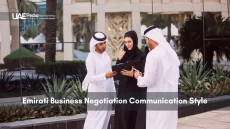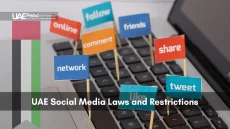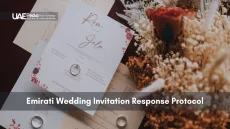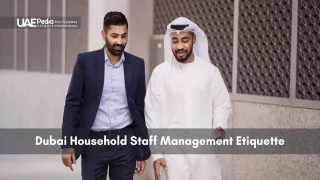What if a simple “marhaba” could open doors to partnerships across the Gulf? With 3.7 billion people now connected globally, how we communicate matters more than ever—especially when cultures collide over calls.
In this guide, we’ll explore the unwritten rules shaping professional exchanges here. You’ll learn why a rushed greeting might signal disrespect or how patience becomes your secret weapon in high-stakes discussions. Think of it as your cultural decoder for building trust through voice alone.
We’ve blended local insights with actionable strategies—from mastering formal openings to reading between the lines of silence. Whether you’re scheduling meetings or closing deals, these nuances separate missed connections from meaningful ones.
What you’ll discover:
- Why punctuality and titles carry unexpected weight in vocal exchanges
- How to balance professionalism with the region’s warm hospitality
- Real-world examples of communication styles that build rapport
Understanding UAE Business Culture Over the Phone
Ever wondered why a five-second greeting could decide a deal’s fate here? Local professionals often describe voice interactions as “the handshake you hear”—a blend of warmth and protocol that builds bridges across borders.
Cultural Norms and Expectations
Start with “Assalamu Alaikum”—this traditional opener does more than say hello. As Dubai-based consultant Amal Khalid notes:
“Responding ‘Wa Alaikum Assalam’ isn’t just polite—it signals you’ve done your homework on regional values.”
Hierarchy shapes every interaction. Senior figures expect acknowledgment first, often through titles like Sheikh or Sayed. Skip this, and you risk sounding dismissive before discussing details.
Professional Greetings and Respectful Address
Western directness can feel jarring here. Instead, mirror the local rhythm: ask about family or health before pivoting to agendas. A quick “How’s your team adapting to the summer heat?” builds rapport faster than diving into spreadsheets.
Timing matters too. Rushing through pleasantries reads as impatience, while measured pauses show respect for reflection. Think of it as leaving space for unspoken agreements to form.
uae phone conversation etiquette business: Essential Communication Strategies
Imagine your words becoming cultural bridges—every syllable shaping partnerships. Here’s how to turn potential missteps into moments of connection.
Speaking Clearly and Avoiding Slang
Think of clarity as your secret weapon. A 2023 global etiquette study found that 68% of professionals prioritize slow, precise speech over rapid-fire jargon. Why? As linguist Dr. Yasmin Al-Tahir explains:
“Pronunciation isn’t about perfection—it’s about showing respect for shared understanding. Even small efforts, like avoiding idioms, signal you value clarity over shortcuts.”
Skip phrases like “circle back” or “blue-sky thinking.” Instead, try: “Let’s review this tomorrow” or “Share your initial thoughts.” Your clients will thank you.
Respecting Hierarchical Titles
Ever heard a “yes” that felt more like a “maybe”? In hierarchical cultures, titles carry weight. Address senior figures first using honorifics like Sheikh or Sayed—even in group calls.
One tech startup learned this the hard way. By assuming first names were acceptable, they accidentally offended a potential investor. A quick title adjustment later? Deal secured.
Pro tip: Pause after key points. Let silence work its magic—it often reveals unspoken agreements or concerns. Pair this with active listening nods (“I see” or “Understood”) to build trust without overstepping.
Establishing Strong Business Relationships Through Calls
Think of your voice as the first brick in a bridge—every interaction lays groundwork for lasting partnerships. In cross-border exchanges, trust isn’t just earned through deals but through how you navigate cultural subtleties and shared values.
Building Trust with International Clients
Patience becomes your superpower here. Regional professionals often interpret rushed agendas as disinterest. Start by asking about their team’s latest project or a recent local event. As global consultant Layla Al-Farsi advises:
“Silence isn’t awkward—it’s sacred space. Let clients fill it with what truly matters to them.”
Punctuality signals reliability. Arriving late to a virtual meeting reads as casually as showing up late to a desert feast. Confirm time zones in advance—a simple “Shall we reconfirm timing?” shows respect for schedules.
Structure conversations like a well-paced story. Begin with warm inquiries, outline key points clearly, and end with action steps. This mirrors the region’s appreciation for tarbya—structured guidance that balances logic with care.
Need to navigate local protocols while staying authentic? Blend professionalism with personal touches. Share appreciation for regional achievements (“Your team’s Expo 2020 pavilion was inspiring”) to create common ground.
Pro tip: After critical points, pause and ask, “Does this align with your vision?” This invites collaboration while honoring hierarchical decision-making styles. Watch how shared nods—even through audio—solidify mutual goals.
Practical Phone Call Etiquette Tips for the UAE Market
Timing isn’t just about clocks here—it’s the rhythm of trust. Master these three areas to turn every dial tone into a bridge toward stronger partnerships.
Scheduling Calls and Managing Punctuality
Confirm time zones twice. A client in Dubai might reschedule midday calls during Ramadan or summer months. Pro tip: Book slots between 10 AM–12 PM local time—avoid prayer hours and midday heat distractions.
| Scenario | Recommended Approach | Why It Works |
|---|---|---|
| Urgent request during lunch | “Shall we connect after 2 PM?” | Respects cultural meal breaks |
| Client running late | Send a brief voice note: “We’ll start when you’re ready.” | Shows flexibility without pressure |
Handling Silence and Allowing Thoughtful Pauses
Ever notice how desert winds pause between gusts? Silence here isn’t empty—it’s fertile ground for decisions. After presenting key points, count to five mentally. As communications coach Rashid Al-Mansoori observes:
“Westerners often rush to fill quiet spaces. Here, patience reveals readiness to listen deeply.”
Dealing with Interruptions and Call Delays
When a sandstorm of disruptions hits—kids laughing, doorbells ringing—smile and say: “Family first! Shall we pause for two minutes?” This honors local values while keeping talks on track.
- If tech fails: Switch to WhatsApp voice notes instantly
- For abrupt endings: Follow up with a courteous “Hope all’s well” message
These strategies aren’t just polite—they’re your compass for navigating the vibrant crossroads of global collaboration. Ready to dial up your cultural IQ?
Integrating Technology to Enhance International Business Calls
Picture this: your next client hears a local dial tone, not an international ring—suddenly, you’re neighbors, not strangers. Modern tools now let you build trust across continents before saying “marhaba.”
Benefits of Hosted Phone Systems
Hosted systems turn global calls into local chats. A European logistics firm slashed costs by 40% while improving call clarity. Features like automated time-zone scheduling and real-time translation logs keep teams aligned.
| Feature | Traditional Lines | Hosted Systems |
|---|---|---|
| Call Recording | Manual setup | Auto-saved to cloud |
| Global Reach | High fees | Flat monthly rates |
| Scalability | Hardware limits | Add users instantly |
Leveraging Local Phone Numbers for Global Engagement
Using local numbers boosts answer rates by 63% according to recent data. Clients feel prioritized when recognizing area codes—like a digital handshake saying “We’re here for you.”
One tech startup grew Middle Eastern partnerships by displaying Dubai numbers. Their CEO noted:
“It transformed cold calls into warm welcomes overnight.”
Key advantages:
- Track peak call times across countries
- Maintain consistent voicemail greetings
- Route calls to available team members instantly
These tools don’t replace human connection—they amplify it. By handling logistics, you free your mind for what matters: building relationships through every “sabah al-khair.”
Final Insights on Mastering UAE Phone Conversation Etiquette
Every dial tone carries the weight of potential partnerships—here’s how to make yours resonate. Cultural awareness and thoughtful preparation turn routine exchanges into relationship-building moments. Whether navigating hierarchical norms or crafting clear messages, success lies in balancing respect with authenticity.
Key strategies like measured pacing and title recognition show you value local traditions. Consistent attention to details—from initial greetings to post-call follow-ups—cements trust with global clients. Remember: each interaction isn’t just a transaction but a step toward lasting business relationships.
Ready to elevate your approach? Start your next call with a warm “sabah al-khair” and let patience guide the flow. Share your experiences below—what cultural insights have transformed your client interactions? Together, we’ll keep refining the art of meaningful professional exchanges.
Always start with formal titles like Sheikh, Mr., or Ms. followed by their full name. If unsure, mirror how they introduce themselves—respect for hierarchy isn’t just polite, it’s expected. A little formality goes a long way here!
Absolutely. Arriving "on Emirati time" isn’t a thing for work calls—delays can signal disorganization. Set calendar reminders, confirm time zones, and dial in 1-2 minutes early. Bonus tip: Avoid scheduling during prayer times (check local schedules!).
Pauses often mean someone’s gathering thoughts—not disinterest. Count to five before jumping in. If silence stretches, politely ask, “Would you like me to clarify?” This shows patience, a trait highly valued in Gulf business culture.
Hosted phone systems with UAE numbers build instant credibility. Clients see a +971 prefix and feel you’re invested here. Many providers offer cloud-based solutions—ideal for teams working remotely but needing that local presence.
Rushing straight to business. Take 2-3 minutes for salaam (peace) exchanges—ask about family or health. Skipping this warm-up can make you seem transactional. Pro tip: Learn basic Arabic greetings; even marhaba (hello) earns smiles.
If your counterpart pauses mid-call, say “I’ll wait while you handle that”—never sigh or tap loudly. For tech glitches, offer to reconnect. Flexibility signals respect for their priorities, which strengthens long-term partnerships.


















